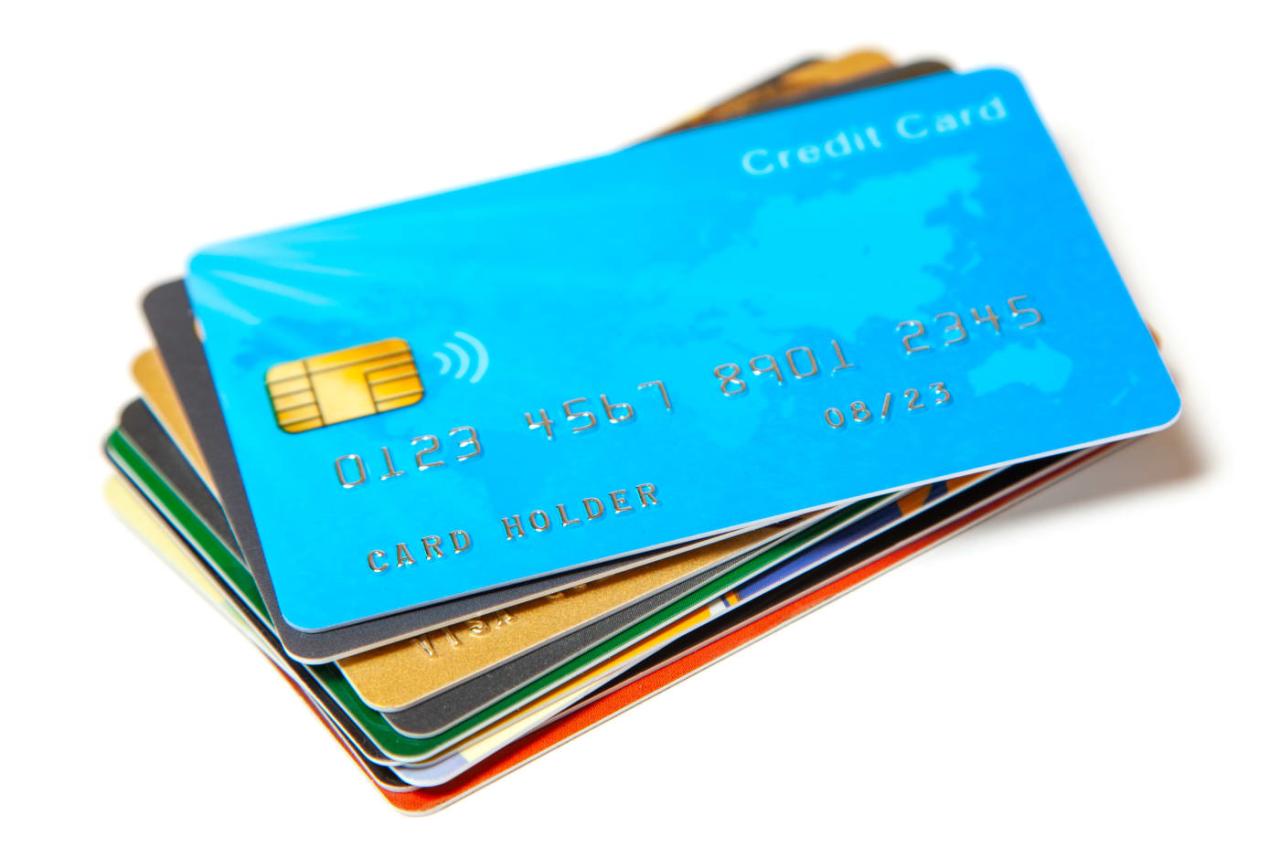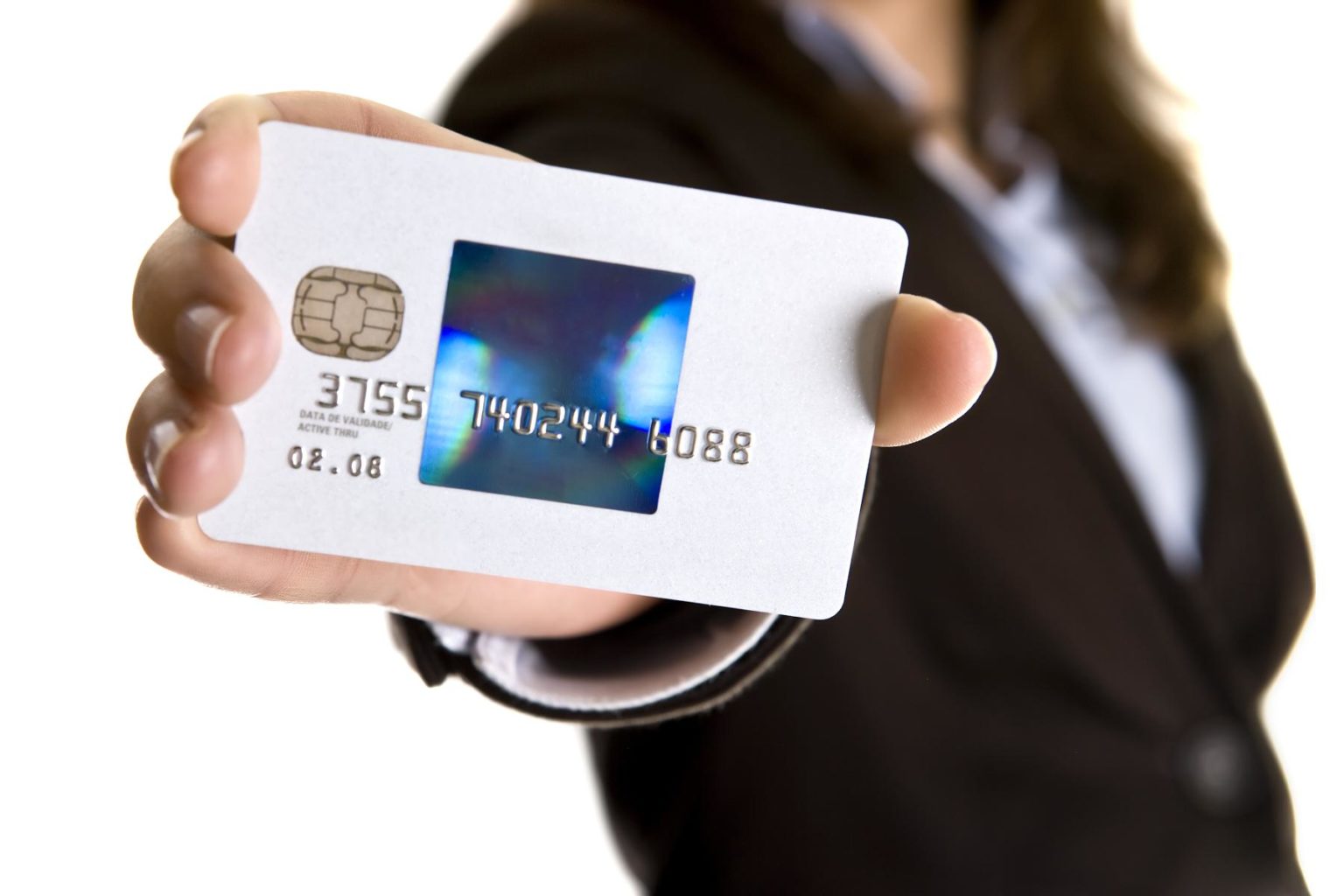True business credit cards are a powerful tool for business owners, offering benefits beyond traditional personal credit cards used for business expenses. These cards provide a dedicated line of credit specifically for business operations, enabling entrepreneurs to build business credit, access exclusive perks, and manage expenses efficiently.
By understanding the distinct advantages of true business credit cards, business owners can unlock opportunities for growth and financial stability. This comprehensive guide will explore the intricacies of these cards, from their unique features to the benefits they offer, empowering you to make informed decisions for your business.
What is a True Business Credit Card?
A true business credit card is a credit card specifically designed for business use, distinct from personal credit cards used for business purposes. These cards offer unique benefits and features tailored to the needs of businesses, allowing them to manage expenses and build business credit.
Benefits of Using a True Business Credit Card
True business credit cards provide numerous advantages for business owners, including:
- Separate Business and Personal Finances: Keeping business expenses separate from personal finances helps streamline accounting, simplify tax preparation, and improve financial organization.
- Building Business Credit: Using a true business credit card allows you to establish and build a separate credit history for your business. This can lead to better interest rates on loans, more favorable financing options, and increased borrowing capacity.
- Reward Programs and Perks: Many business credit cards offer attractive reward programs, such as cash back, travel miles, or points, which can be redeemed for business-related expenses or personal rewards.
- Expense Tracking and Reporting: Business credit cards often provide detailed transaction reports and online tools to help track expenses, analyze spending patterns, and manage cash flow effectively.
- Employee Cards: Some business credit cards allow you to issue employee cards, giving you control over spending and providing employees with convenient access to company funds.
Differences in Credit Reporting and Credit Scoring
Business credit and personal credit are reported and scored differently.
- Separate Credit Bureaus: Business credit is reported to commercial credit bureaus, such as Dun & Bradstreet, Experian Business, and Equifax Small Business, while personal credit is reported to consumer credit bureaus (Equifax, Experian, and TransUnion).
- Different Credit Scores: Business credit scores are calculated using different factors than personal credit scores. Factors considered for business credit scores include payment history, credit utilization, business age, and financial statements.
- Impact on Personal Credit: Business credit card activity generally does not impact your personal credit score directly. However, if you personally guarantee the business credit card, a late payment or default could negatively affect your personal credit.
Benefits of True Business Credit Cards

A true business credit card offers a range of benefits that can significantly impact your business operations and financial health. These benefits go beyond the convenience of making business purchases and extend to rewards programs, travel perks, and expense management tools, all designed to help you grow your business and improve profitability.
Reward Programs
Reward programs are a significant advantage of using a true business credit card. They offer a variety of ways to earn points or cash back on your business purchases. These rewards can be redeemed for valuable benefits, such as travel, merchandise, gift cards, or even statement credits.
- Cash back rewards: These programs offer a percentage of your spending back as cash. This cash can be used to offset business expenses or deposited into your business account.
- Points-based rewards: These programs allow you to earn points on your business purchases, which can be redeemed for travel, merchandise, or other benefits. Some programs even offer bonus points for specific categories of spending, such as dining or travel.
- Travel rewards: These programs offer benefits such as airline miles, hotel points, or travel discounts. This can be especially beneficial for businesses that travel frequently.
These reward programs can help businesses save money and generate revenue, making them a valuable asset for any business owner.
Travel Perks, True business credit card
Travel perks offered by business credit cards can make business travel more convenient and affordable.
- Airport lounge access: Some business credit cards offer complimentary access to airport lounges, providing a comfortable and relaxing space to work or relax before a flight.
- Travel insurance: Many business credit cards include travel insurance coverage, which can provide protection against unexpected events such as flight delays, lost luggage, or medical emergencies while traveling.
- Travel discounts: Some business credit cards offer discounts on flights, hotels, and car rentals, making business travel more affordable.
These travel perks can significantly enhance the travel experience for business owners and employees, making it easier and more cost-effective to travel for business purposes.
Expense Management Tools
True business credit cards often come with expense management tools that can simplify the process of tracking and managing business expenses.
- Detailed transaction reports: These reports provide a breakdown of all business expenses, making it easy to track spending and identify areas for potential savings.
- Categorization and tagging: These features allow you to categorize and tag expenses, making it easier to analyze spending patterns and identify trends.
- Mobile app access: Many business credit cards offer mobile app access, allowing you to track expenses, make payments, and manage your account from anywhere.
These tools can help businesses streamline their expense management process, improve financial visibility, and make better financial decisions.
Building Business Credit
Using a true business credit card is a crucial step in building business credit.
Business credit is a separate credit score from your personal credit score and is based on your business’s financial history.
A good business credit score can help your business qualify for loans, lines of credit, and other financing options at lower interest rates. It can also make it easier to secure business leases, utilities, and other services.
- Responsible credit card use: Paying your business credit card bills on time and keeping your credit utilization low can help build a positive credit history.
- Regular credit card usage: Using your business credit card regularly and making responsible payments demonstrates your business’s creditworthiness to lenders.
- Tracking your business credit score: Regularly monitoring your business credit score can help you identify any potential issues and take steps to improve your score.
By establishing and maintaining good business credit, you can create a strong financial foundation for your business and unlock opportunities for growth and success.
Types of True Business Credit Cards
True business credit cards are designed to cater to the unique needs of different businesses. They offer a variety of features and benefits, such as cash back rewards, travel perks, and business services, that can help businesses save money and grow.
Types of True Business Credit Cards
The types of true business credit cards can be broadly categorized based on their primary benefits and features.
- Reward Cards: These cards offer rewards for everyday business expenses, such as cash back, travel points, or airline miles. These rewards can be redeemed for a variety of perks, such as travel, merchandise, or gift cards.
- Business Services Cards: These cards offer a range of business services, such as expense tracking, invoice management, and fraud protection. These services can help businesses save time and money by streamlining their operations.
- Travel Cards: These cards offer travel rewards, such as bonus points for travel purchases, airport lounge access, and travel insurance. These benefits can be valuable for businesses that travel frequently.
- Small Business Cards: These cards are designed for small businesses with limited credit history or revenue. They often have lower credit limits and higher interest rates, but they can be a good option for businesses that are just starting out.
Applying for a True Business Credit Card

Applying for a true business credit card is a straightforward process, similar to applying for a personal credit card. However, there are some specific requirements and factors that can influence your application’s outcome.
Application Process
The application process for a true business credit card typically involves the following steps:
- Gather Required Information: You’ll need to provide personal and business information, including your Social Security number, business tax ID (EIN), business structure, annual revenue, and business credit history.
- Complete the Application: Fill out the online application form, providing accurate and complete information.
- Submit Supporting Documents: You may need to submit supporting documents, such as your business license, articles of incorporation, or tax returns.
- Credit Check and Review: The issuer will review your application and perform a credit check on your personal and business credit history.
- Decision and Approval: You’ll receive a decision on your application, which could be an approval, a denial, or a request for additional information.
Required Documents and Information
The specific documents and information required may vary depending on the issuer and the type of business credit card you’re applying for. However, here’s a general checklist:
- Personal Information: Your full name, address, Social Security number, date of birth, and contact information.
- Business Information: Business name, legal structure (sole proprietorship, partnership, LLC, corporation), business tax ID (EIN), business address, phone number, website, and industry.
- Financial Information: Annual revenue, number of employees, years in business, and business credit history (if available).
- Supporting Documents: Business license, articles of incorporation, tax returns, bank statements, or other relevant documentation.
Factors Influencing Approval and Credit Limit
Several factors can influence your chances of approval and the credit limit you’re offered. Here are some key considerations:
- Personal Credit Score: Your personal credit score plays a significant role in the approval process, as it reflects your creditworthiness. A higher credit score generally increases your chances of approval and can lead to a higher credit limit.
- Business Credit Score: If your business has an established credit history, a good business credit score can improve your chances of approval and potentially result in a higher credit limit.
- Business Revenue and Financial Stability: Issuers typically look at your business’s financial stability, including revenue, expenses, and cash flow. A strong financial track record can positively impact your application.
- Business Age: Newer businesses may face a higher hurdle in securing a true business credit card. Established businesses with a longer track record often have an advantage.
- Industry: Some industries may be considered higher risk by credit card issuers, potentially affecting your approval odds.
- Credit Card Issuer: Different issuers have different approval criteria and credit limit policies.
Responsible Use of True Business Credit Cards

Building and maintaining a good business credit score is essential for your company’s financial health. Responsible use of true business credit cards plays a crucial role in this process. By understanding and implementing best practices, you can leverage the benefits of business credit cards while minimizing risks.
Managing Expenses and Avoiding Debt
Managing your business credit card expenses effectively is key to avoiding debt and maintaining a healthy credit score. This involves setting spending limits, tracking expenditures, and making timely payments.
- Set Spending Limits: Establish clear spending limits for each card and stick to them. This helps you avoid overspending and accumulating unnecessary debt.
- Track Expenses: Keep meticulous records of all your business credit card purchases. This includes using online portals, mobile apps, or spreadsheets to monitor spending and identify potential areas for cost savings.
- Pay on Time: Make all payments due on your business credit cards by the due date. Late payments can negatively impact your credit score and lead to higher interest charges.
Tracking Spending and Making Timely Payments
Regularly tracking your business credit card spending is crucial for maintaining financial control and avoiding unnecessary debt. It allows you to identify patterns, analyze expenses, and make informed financial decisions. Timely payments are equally important, as they contribute significantly to your credit score.
- Utilize Online Tools: Take advantage of online portals and mobile apps provided by your credit card issuer. These tools offer detailed transaction histories, spending summaries, and payment options, making it easy to stay on top of your finances.
- Set Payment Reminders: Use calendar reminders, mobile app notifications, or online banking tools to ensure timely payments.
- Automate Payments: Consider setting up automatic payments to avoid late fees and maintain a positive payment history.
Consequences of Defaulting on Business Credit Card Payments
Defaulting on business credit card payments can have serious consequences for your company’s financial health and creditworthiness. It can lead to late fees, higher interest rates, damage to your credit score, and potential legal action.
- Late Fees: Failure to make payments on time will result in late fees, which can quickly add up and significantly impact your overall spending.
- Increased Interest Rates: Consistent late payments can lead to higher interest rates, making it more expensive to manage your credit card debt.
- Negative Credit Score Impact: Defaulting on payments will negatively impact your business credit score, making it harder to obtain loans or financing in the future.
- Legal Action: In extreme cases, credit card issuers may take legal action to recover outstanding debt, potentially leading to lawsuits, wage garnishments, or property seizures.
Comparison of True Business Credit Cards
Choosing the right true business credit card can be a daunting task, as numerous options are available, each offering unique benefits and features. This section provides a comprehensive comparison of popular true business credit cards, enabling you to make an informed decision based on your specific business needs and preferences.
Comparison of True Business Credit Cards
| Card | Annual Fee | Rewards Rate | Credit Limit |
|---|---|---|---|
| Ink Business Preferred Credit Card | $95 | 3x points on the first $150,000 spent each calendar year on travel, shipping, advertising, social media, and search engine marketing, 1x point on all other purchases | Varies based on creditworthiness |
| Chase Ink Business Cash Credit Card | $95 | 5% cash back on the first $25,000 spent each calendar year in combined purchases from select categories, 1% cash back on all other purchases | Varies based on creditworthiness |
| Capital One Spark Cash for Business | $0 | 2% cash back on all purchases | Varies based on creditworthiness |
| American Express Blue Business Plus Credit Card | $0 | 2x Membership Rewards points on the first $50,000 spent each calendar year on eligible purchases, 1x point on all other purchases | Varies based on creditworthiness |
True Business Credit Cards vs. Personal Credit Cards for Business
When deciding how to finance your business, you might wonder whether to use a true business credit card or a personal credit card. Both options have their advantages and disadvantages, and the best choice for you will depend on your specific circumstances.
This section will compare and contrast the benefits and drawbacks of using a true business credit card versus a personal credit card for business expenses. We will also discuss the implications of using a personal credit card for business purposes on personal credit scores and explain the potential risks and benefits of each approach.
Impact of Using a Personal Credit Card for Business Purposes on Personal Credit Scores
Using a personal credit card for business expenses can negatively impact your personal credit score. This is because credit bureaus view business spending as a higher risk than personal spending. If you default on your business debts, it can negatively affect your personal credit score, making it harder to obtain loans or credit in the future.
Benefits and Drawbacks of Using a True Business Credit Card
Benefits
- Separate Business and Personal Finances: A true business credit card helps you separate your business expenses from your personal expenses, making it easier to track your business’s financial performance. This separation also helps to protect your personal credit score from the potential risks associated with business debt.
- Build Business Credit: Using a true business credit card allows you to establish and build business credit, which can be beneficial for obtaining business loans, leases, and other financing options in the future. Business credit is a separate entity from your personal credit, so it doesn’t directly impact your personal credit score.
- Business-Specific Rewards and Perks: Many true business credit cards offer rewards programs and perks tailored to business owners, such as travel points, cash back on business expenses, and discounts on business services. These rewards can help you save money and improve your business’s bottom line.
- Enhanced Security Features: True business credit cards often come with enhanced security features, such as fraud protection and zero liability policies, which can help to protect your business from unauthorized transactions.
Drawbacks
- Higher Interest Rates: True business credit cards typically have higher interest rates than personal credit cards. This is because lenders perceive businesses as a higher risk than individuals. It is crucial to pay your balance in full each month to avoid accruing significant interest charges.
- Stricter Eligibility Requirements: True business credit cards often have stricter eligibility requirements than personal credit cards. You may need a strong business credit history or a high personal credit score to qualify for a true business credit card.
- Limited Spending Limits: The spending limits on true business credit cards may be lower than those on personal credit cards, especially for new businesses or businesses with limited credit history. This could limit your ability to make large purchases or cover unexpected expenses.
Benefits and Drawbacks of Using a Personal Credit Card for Business Purposes
Benefits
- Easier to Qualify: Personal credit cards generally have less stringent eligibility requirements than true business credit cards, making it easier to qualify for a card. This can be advantageous for startups or businesses with limited credit history.
- Potential for Higher Credit Limits: Personal credit cards often offer higher credit limits than true business credit cards, which can be beneficial for businesses that require a large line of credit. However, it is important to remember that using a personal credit card for business expenses can negatively impact your personal credit score.
- Access to Rewards and Perks: Some personal credit cards offer rewards programs and perks that can be beneficial for business owners, such as travel points, cash back on purchases, and purchase protection. However, these rewards may not be as tailored to business expenses as those offered by true business credit cards.
Drawbacks
- Negative Impact on Personal Credit Score: Using a personal credit card for business expenses can negatively impact your personal credit score. Credit bureaus may view business spending as a higher risk than personal spending, and a default on business debts could affect your personal credit score.
- Lack of Business-Specific Features: Personal credit cards may not offer the same business-specific features as true business credit cards, such as fraud protection policies, expense tracking tools, or dedicated customer support for business owners.
- Limited Liability Protection: The liability protection offered by personal credit cards may not be as comprehensive as that offered by true business credit cards, especially if you are using the card for business transactions.
Concluding Remarks
In conclusion, true business credit cards present a valuable opportunity for entrepreneurs to enhance their financial standing and propel their businesses forward. By leveraging the benefits of dedicated business credit, accessing exclusive perks, and managing expenses effectively, businesses can build a strong foundation for success. Remember, responsible use and careful planning are essential for maximizing the advantages of true business credit cards.
General Inquiries
What is the minimum credit score required for a true business credit card?
The minimum credit score required varies depending on the issuer and the specific card. Generally, a good business credit score (around 680 or higher) increases your chances of approval and securing a favorable interest rate.
Can I use a true business credit card for personal expenses?
It’s generally not recommended to use a true business credit card for personal expenses. Doing so could lead to penalties and negatively impact your business credit score.
How often should I make payments on my business credit card?
It’s best to make payments on your business credit card in full each month to avoid accruing interest charges. If you can’t pay the full balance, aim to make at least the minimum payment due by the due date.
How long does it take to build business credit?
Building business credit takes time and consistent responsible use. It typically takes several months to a year of regular payments and responsible usage to establish a solid business credit history.
 Norfolk Publications Publications ORG in Norfolk!
Norfolk Publications Publications ORG in Norfolk!

